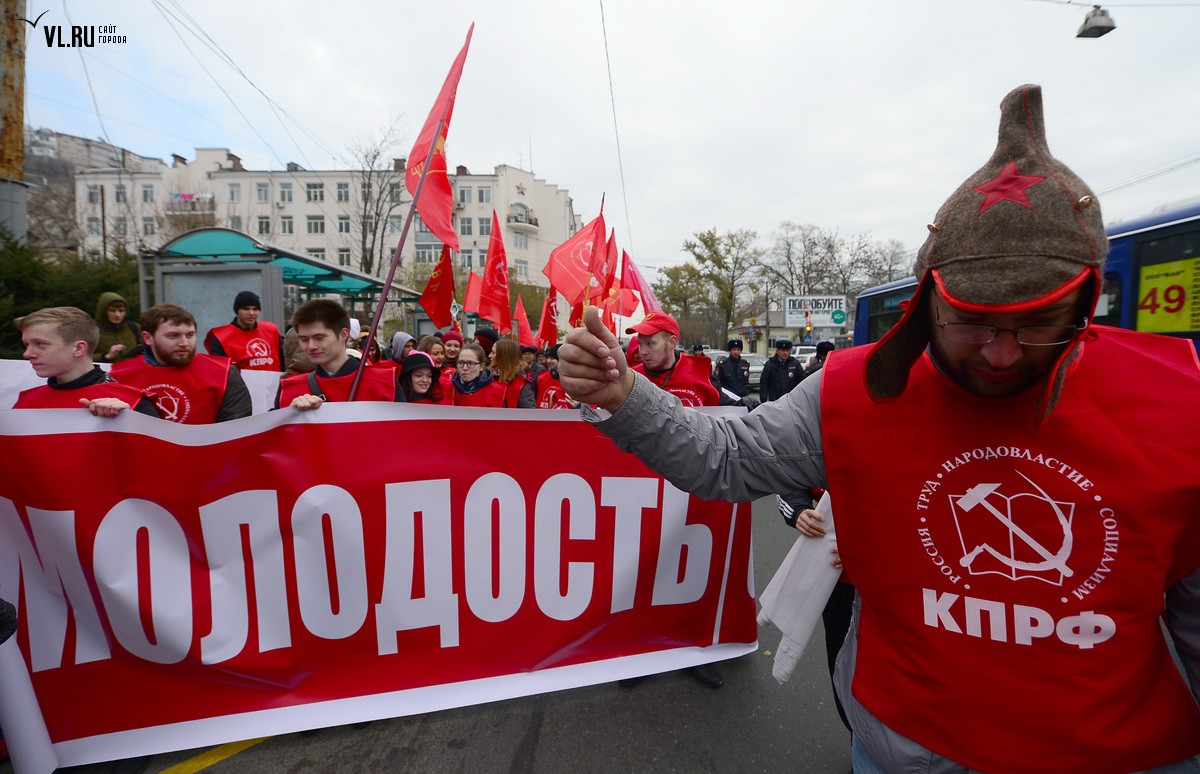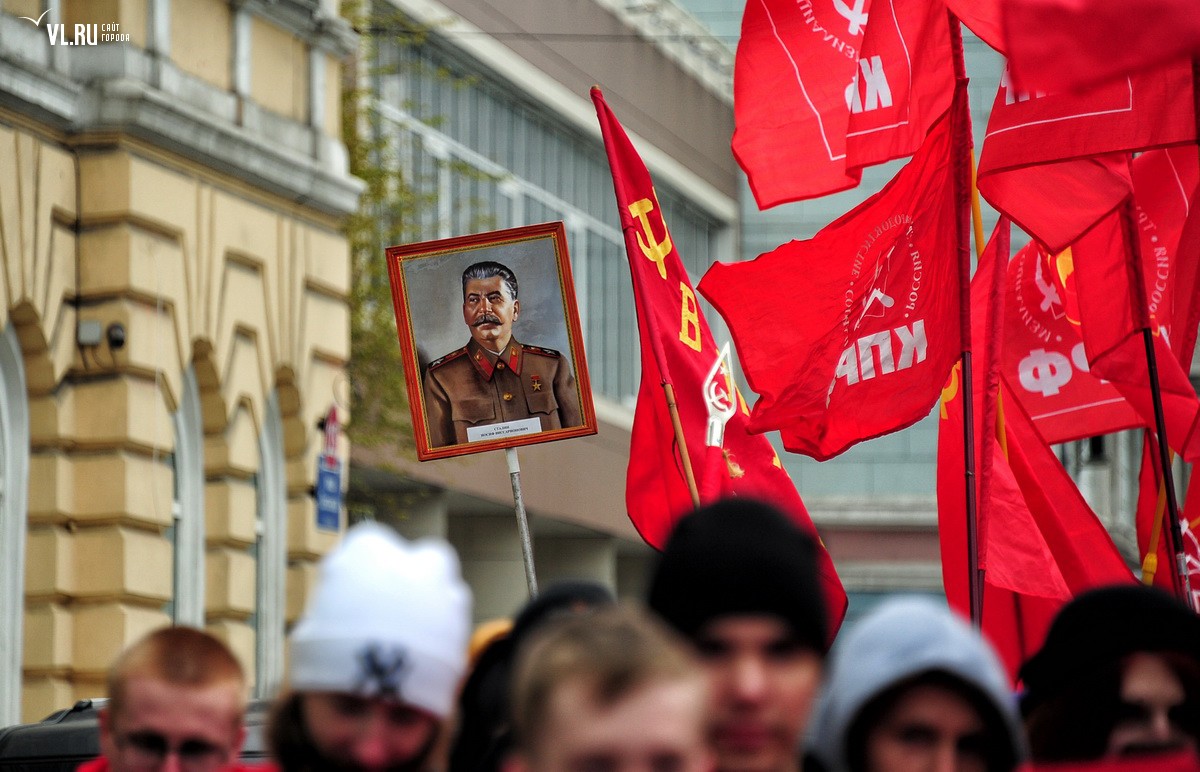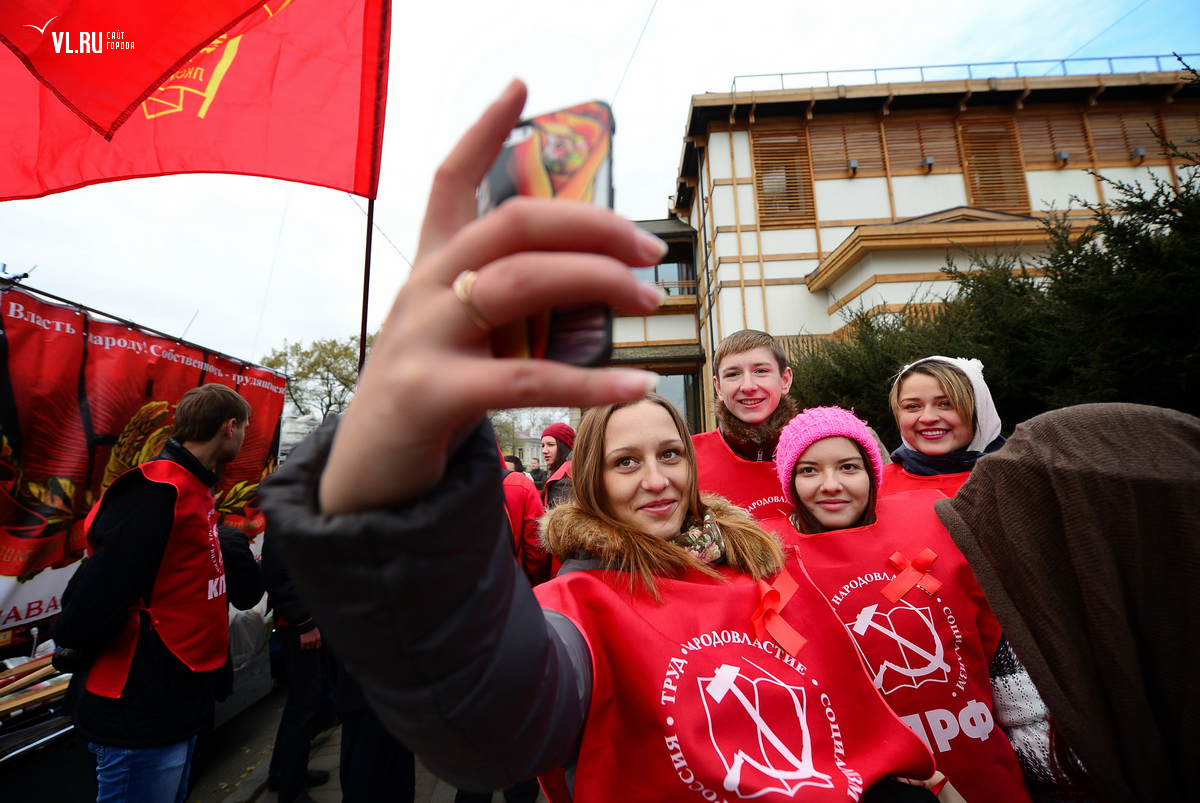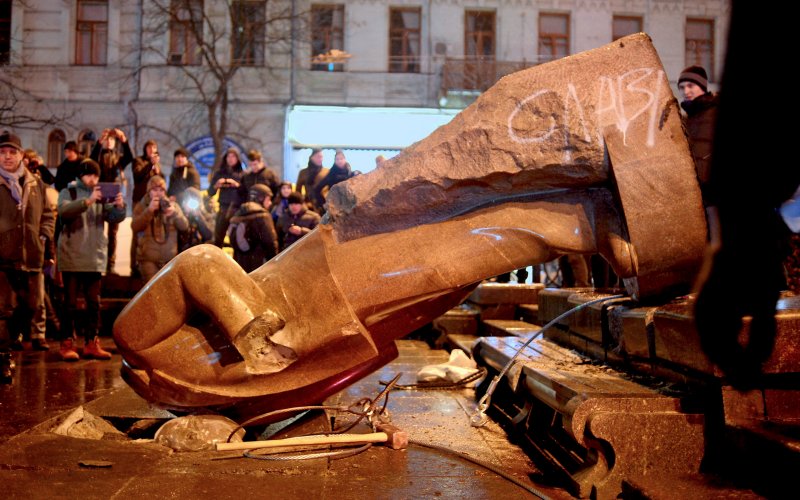In early July, I wrote about how it is profitable for the Kremlin to take advantage of radical groups and patriotic movements. Radical elements play an important role in military mobilization while simultaneously underscoring the role of Vladimir Putin as a "leader lifting Russia from its knees". At the same time, it's easy to use these groups to blackmail the West with the threat that, after Putin, a much more radical could come to power, and so it's best to negotiate with a "sane" Russian leader.
For the time being, the leaders of the main ultra-patriotic movements are controlled by the Kremlin, either directly or through certain political elites and power structures. However, in my view, the risk still exists that some of these movements sooner or later will get out of control. Contrary to popular fears, I don't think this would be a nationalist movement. Russian radical nationalist movements are rather disunited, do not have a common program, and are prone to extremist displays, and so are not able to secure broad support in a multinational country. After the Russian annexation of the Crimea and Donbas invasion, it became obvious that the majority of Russian nationalists subscribe to an imperialist vision which does not care whether the empire is extended to Donetsk or Damascus. The remaining minority, non-imperialist nationalists – preferred to join the Ukrainian "Right Sector," or other similar organizations, or simply go underground.
But the situation is different with the Communists. I don't mean actual members of the Communist Party of the Russian Federation, which is loyal to the Putin regime. I refer to convinced supporters of the revival of the "red project," mainly young people. Even before the Russo-Ukrainian war, "the Soviet project" had a number of both natural and artificially created prerequisites for a revival:
- Many Russians in the 90s and the 2000s really did not fit into the transitional market economy, and they were genuinely nostalgic for Soviet times, which gave them a guaranteed job, social security, albeit of low quality, an income – in other words, a guaranteed social package that did not depend on personal efforts, abilities or achievements.
- The current government, despite its aggressive attempts to regiment society, does not offer a model for the future. Current Russian ideology is remarkable for its lack specific content. Ideologically loaded concepts like "the Russian world", "Russian civilization", "the special destiny of Russia" lack specific content. This has resulted in the old Soviet myth of the "bright future" being replaced by an idealized past which centers on a certain romanticized image of the Soviet Union.
- Against this backdrop there were and still are ideologues and proponents of a return to "the bright past," not only working at newspapers such as "Zavtra," but also in think tanks close to the Kremlin. The Head of the Center for Research of Society in Crisis, Sergey Kara-Murza has worked over the past few decades to show that the phenomenon of "Soviet man" is consistent with a deep Russian cultural code, and that the words "Soviet" and "Russian" are virtually synonymous.
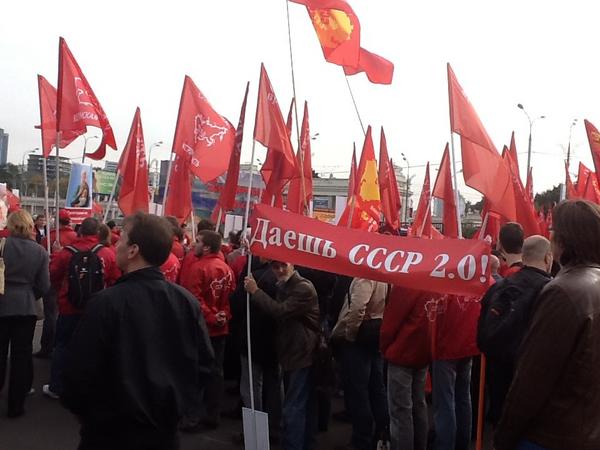
In November 2003, during an interview on the radio station "Eko Moskvy," Kara-Murza asserted that Soviet Man is a product of civilization. "Let’s take anti-Sovietism, which is conscious and profound. Russophobia always lies beneath it." Kara-Murza constantly suggested that the Soviet era was the perfect embodiment of the values of solidarity and fraternity (apparently he has forgotten about the mass deportations, the ideology of hatred against "enemies and traitors," rote criticism at Party meetings and other Soviet realities). The same ideas are promulgated by Kara-Murza’s followers, such as a certain Vladimir Somov, who suggests that "a negative attitude towards 'the Soviets' and 'the Soviet' is a reaction against … the ethnic group that historically made up the Russian state," e.g. ethnic Russians.
- The Russian authorities have for many years worked diligently to idealize certain features and elements of the Soviet system in order to exploit the images of the past which serve to strengthen the authoritarian political system and justify the growing ambitions of Vladimir Putin personally. For example: rehabilitation of Stalin and the repression he inspired; the cult of so-called "Chekism" (the NKVD-KGB) and promotion of a romanticized image of intelligence operatives and the justification of any of their methods, however cruel; the constant search for external and internal enemies. We are witnessing a revival of the key characteristics of Soviet mentality, all except communist ideology.
The constant repetition of the slogan, "In order to win the war, we must become like the USSR," might well be turned against the Kremlin.
Photos: young Russians at a demonstration in honor of the anniversary of the October revolution of 1917 in Vladivostok, 17 November 2015. Note the portrait of Stalin. Source: vl.ru
The result of these processes is the emergence of ideologically-minded youth, who believe it is possible to revive the USSR. I had to deal with adherents of yet another Soviet apologist, Sergey Kurginyan. In contrast to members of the "Young Guard" or the notorious and unfortunately named [pro-Putin youth movement] "Nashi," they do not consider membership in the organization as a political trampoline. "Kurginyanovites" are amazingly blind to the pro-government bias of their leader. They actually consider themselves to be part of the opposition, believe their mission is to "save Russia." They are ready to travel at their own expense to Moscow [to participate in pro-Putin] demonstrations on Poklonnaya Hill, or to order Stalin portraits for display in city buses.

The number of such ideological communists is small in comparison with the bulk of the ordinary Russian people who are indifferent to politics. However, the situation may change due to the relentless mobilization of the population over the past year and a half. The artificial creation of extreme conditions, the ongoing war, the insistence that "Russia is surrounded by enemies," calls to endure further hardship for the sake of the struggle, ruthless exploitation of historical myths to justify the Kremlin's current policies – all this inevitably leads to a growing number of activists.
However, an inverse relationship also is true: relentless mobilization of the population gives rise to increased demand for a totalitarian ideology. Today, the government demands from a population accustomed to comfort to accept deprivation: for the sake of "Crimea," "to help New Russia," "to protect the brotherly Syrian people in the fight against the Islamic state,” and more. And so Kremlin ideologists and propagandists dig up examples of such "sacrifice," in the Soviet past. The degree of idealization of the aggressive policy of Moscow has grown even in comparison with the period prior to the Russo-Ukrainian war.
Along with imperial complexes, a willingness to tolerate and overcome hardships, and support for the militaristic policies of the authorities, the Soviet myth is firmly linked in the minds of Russians with the idea of social justice and total rejection of oligarchy and corruption. Against the background of the rise of aggressive rhetoric in the Russian media one increasingly hears accusations of: corruption "in time of war," "sabotage, subversion and treason," the corrupt should be punished in the Stalinist manner, and it is long past time to expropriate the property of the oligarchs. Yes, and the oligarchs themselves, as well as negligent officials, more often referred to as "agents of the (American) State Department" and covert enemies of the country.
While Vladimir Putin manages to keep ideologists under control, so long as they don't attack him and those close to him. So far, the Kremlin has managed to soothe a people that is becoming impoverished by punishing an unlucky few of the most blatantly corrupt officials. However, the longer an aggressive foreign policy is pursued, coupled with an increase in repression, the cult of Stalinism and inspiring a nostalgic mood, the more likely it is that the more deeply in the past the population is immersed, there will rise a demand for "genuine socialism": with guaranteed jobs, lack of crime, free education and health care. This is exactly what the Russian government is not able to provide.
Constant repetition of the slogan "To win a war, you must become like the Soviet Union," to which the Kremlin is increasingly addicted may well turn against them. When the standard of living seriously deteriorates, the riots may start, but not under the liberal banner as the Kremlin fears, but under the socialist banner. And for those Russian officials who are not prepared to don the old tunic and renounce their luxurious palaces, the unhappy days might begin.


